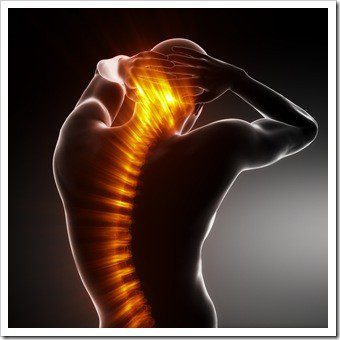 The vast majority of adults today have experienced some level of back pain during their life. Whether it was following strenuous activity or just lifting something awkwardly. Most often the pain will dissipate following a period of rest if it is purely a muscular type of pain. However, this is typically a far cry from what is experienced with a spinal disc injury. Quite commonly the pain experienced with a spinal disc injury is described with a variety of superlatives. Even many mothers report that they would prefer going through the pain of giving birth to the pain associated to a spinal disc injury.
The vast majority of adults today have experienced some level of back pain during their life. Whether it was following strenuous activity or just lifting something awkwardly. Most often the pain will dissipate following a period of rest if it is purely a muscular type of pain. However, this is typically a far cry from what is experienced with a spinal disc injury. Quite commonly the pain experienced with a spinal disc injury is described with a variety of superlatives. Even many mothers report that they would prefer going through the pain of giving birth to the pain associated to a spinal disc injury.
Unfortunately, spinal disc problems or disc injuries are extremely common. Understanding what the discs are and how they affect your spine are very important in the treatment of protruding and or herniated discs but also the arthritis that can occur when the spinal discs have become thin. Our team can work with you to plan a course of treatment that will be effective for your condition, whether mild or severe we can help you understand and correct it.
What are Spinal Discs?
In between our vertebrae are pads called the intervertebral discs, these have a gel like soft center with a stronger outer shell. These discs are attached to our vertebrae and they act as separators. The discs are highly effective shock-absorbers and offer a guard to prevent the bones rubbing on each other as we move. The discs in our spine keep it strong, sturdy and supple.
A protruding disc indicates that the gel in the disc is beginning to push out against the ligamentous wall of the disc but it does not compromise or tear the wall of the disc. At least 60% of pain free adults have one or more bulging or protruding spinal discs. A herniated disc is when the gel in the disc bulges and begins to tears through the first layers of the ligamentous wall of the disc. The bulging and tearing the the ligamentous wall of the disc can irritate nerves, cause inflammation, numbness and often severe pain.
A more serious condition is disc extrusion (also known as a ruptured disc). This is when the gel in the disc fully tears through the ligamentous wall of the disc. When the gel-like from inside the disc leaks out it can cause intense back pain and severely restricted movement.
The Good News With the Majority of Disc Injuries We Can Help You Recover Without Surgery!
The first steps would be to call our office today to schedule a consultation with one of our qualified team. Let us help you understand your condition and how to correct it naturally before choosing surgery. We look forward to hearing from you soon!
For Your Health,
Dr. Steven M. Gillis

